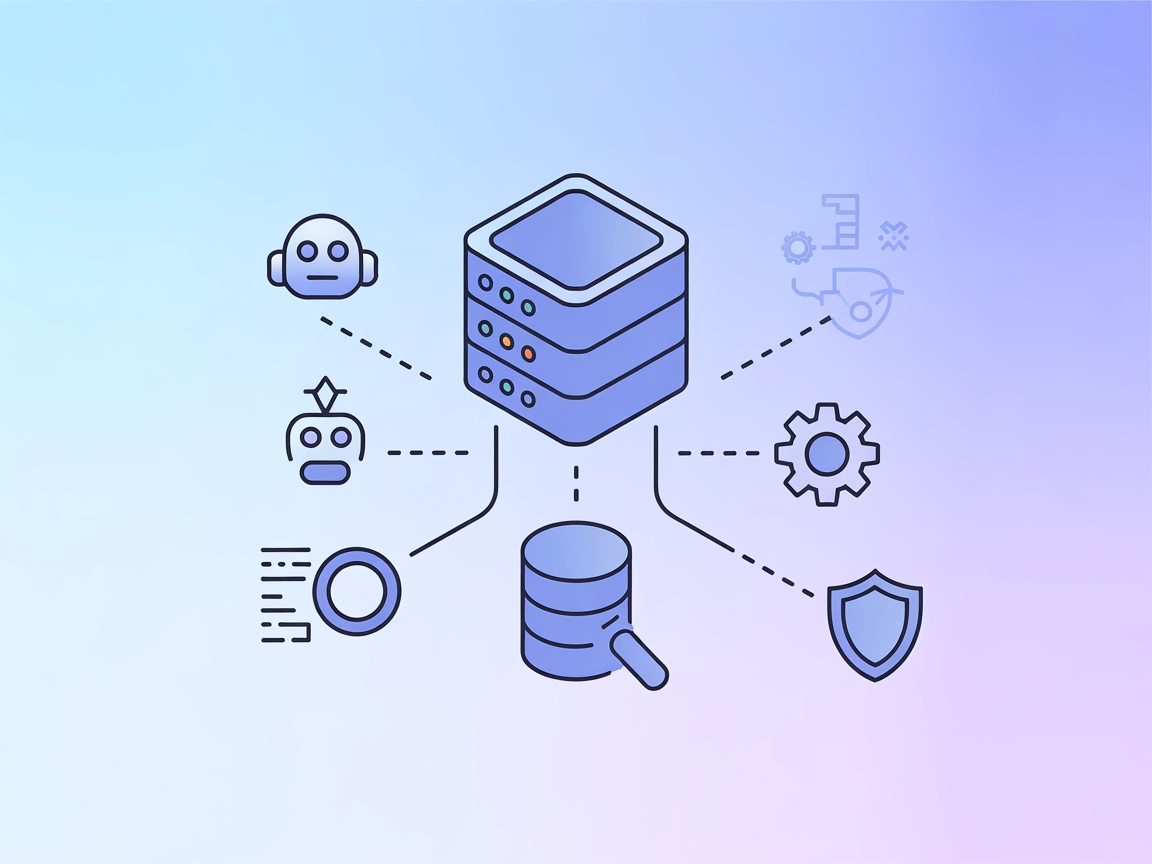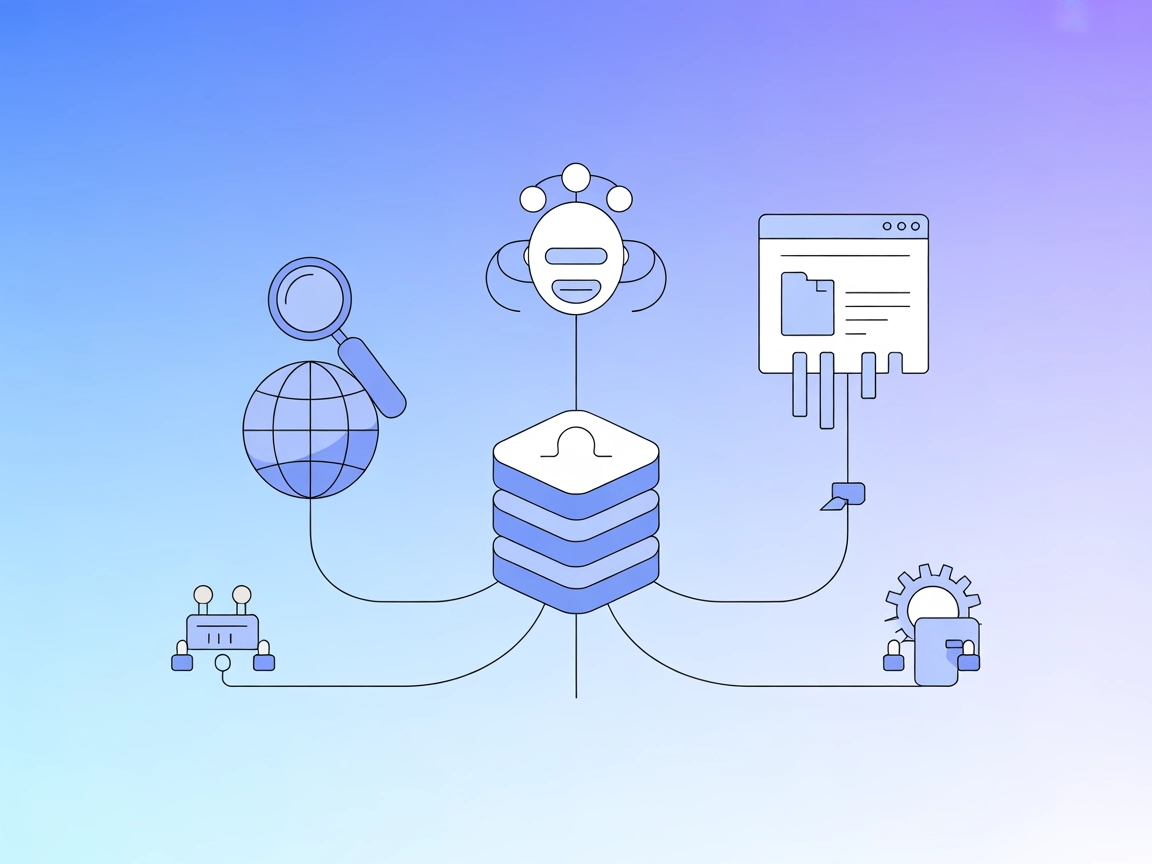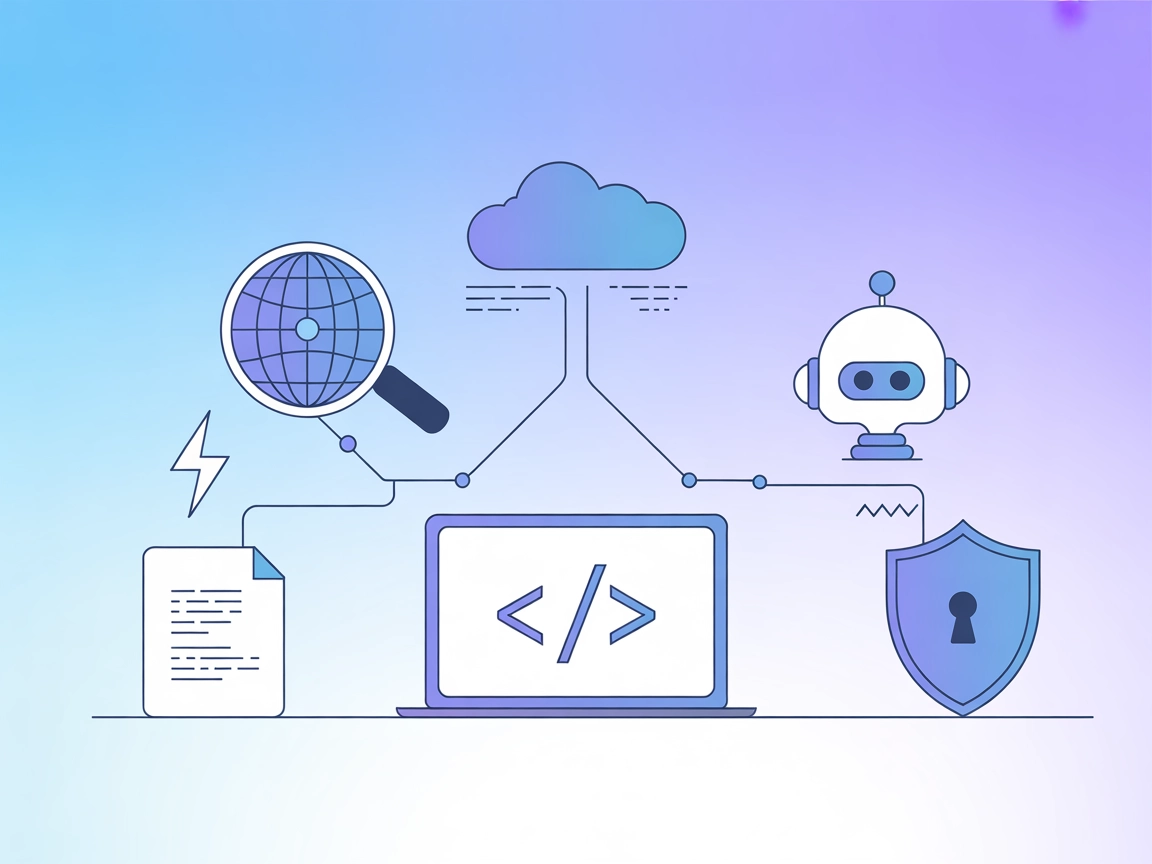
OpenSearch MCP Server Integration
The OpenSearch MCP Server enables seamless integration of OpenSearch with FlowHunt and other AI agents, allowing programmatic access to search, analytics, and c...

Connect your AI agents to the live web with OpenAI WebSearch MCP Server, ensuring real-time, accurate, and location-aware responses for your users.
FlowHunt provides an additional security layer between your internal systems and AI tools, giving you granular control over which tools are accessible from your MCP servers. MCP servers hosted in our infrastructure can be seamlessly integrated with FlowHunt's chatbot as well as popular AI platforms like ChatGPT, Claude, and various AI editors.
The OpenAI WebSearch MCP Server enables AI assistants to access OpenAI’s web search functionality via the Model Context Protocol (MCP). By acting as a bridge between AI models and real-time web information, this server allows assistants to retrieve up-to-date data that may not be present in their training corpus. Developers can integrate this server with platforms like Claude or Zed, equipping their AI agents with the ability to perform live web searches during conversations. This significantly enhances use cases such as answering current events questions, enriching context with recent data, and providing a more dynamic, informed AI development workflow.
No prompt templates are listed in the repository or documentation.
No explicit resources are listed in the repository or documentation.
type (string): Must be “web_search_preview”.search_context_size (string): Guidance for context window usage—can be “low”, “medium” (default), or “high”.user_location (object or null): Contains location info (type, city, country, region, timezone) for tailoring searches.Coming soon (no steps currently provided in the documentation).
OPENAI_API_KEY=sk-xxxx uv run --with uv --with openai-websearch-mcp openai-websearch-mcp-install
uvx and edit your Claude settings:"mcpServers": {
"openai-websearch-mcp": {
"command": "uvx",
"args": ["openai-websearch-mcp"],
"env": {
"OPENAI_API_KEY": "your-api-key-here"
}
}
}
pip install openai-websearch-mcp
"mcpServers": {
"openai-websearch-mcp": {
"command": "python",
"args": ["-m", "openai_websearch_mcp"],
"env": {
"OPENAI_API_KEY": "your-api-key-here"
}
}
}
Securing API Keys:
Store API keys using the env field in your configuration.
Example:
"env": {
"OPENAI_API_KEY": "your-api-key-here"
}
Coming soon (no steps currently provided in the documentation).
No setup instructions provided in the documentation.
uvx, add to your Zed settings.json:"context_servers": [
"openai-websearch-mcp": {
"command": "uvx",
"args": ["openai-websearch-mcp"],
"env": {
"OPENAI_API_KEY": "your-api-key-here"
}
}
],
"context_servers": {
"openai-websearch-mcp": {
"command": "python",
"args": ["-m", "openai_websearch_mcp"],
"env": {
"OPENAI_API_KEY": "your-api-key-here"
}
}
},
Securing API Keys:
Use the env field as shown above.
Using MCP in FlowHunt
To integrate MCP servers into your FlowHunt workflow, start by adding the MCP component to your flow and connecting it to your AI agent:

Click on the MCP component to open the configuration panel. In the system MCP configuration section, insert your MCP server details using this JSON format:
{
"openai-websearch-mcp": {
"transport": "streamable_http",
"url": "https://yourmcpserver.example/pathtothemcp/url"
}
}
Once configured, the AI agent is now able to use this MCP as a tool with access to all its functions and capabilities. Remember to change “openai-websearch-mcp” to whatever the actual name of your MCP server is and replace the URL with your own MCP server URL.
| Section | Availability | Details/Notes |
|---|---|---|
| Overview | ✅ | Found in README.md |
| List of Prompts | ⛔ | No prompt templates listed |
| List of Resources | ⛔ | No explicit resources listed |
| List of Tools | ✅ | web_search tool described |
| Securing API Keys | ✅ | Detailed use of env fields in JSON configs |
| Sampling Support (less important in evaluation) | ⛔ | Not mentioned |
Between these tables:
This MCP server is focused and well-documented for its core use case (web search access for LLMs), but lacks advanced MCP features such as custom prompts, explicit resources, or sampling/roots support. Overall, it’s robust for its intended scenario, but limited in extensibility. Rating: 5/10
| Has a LICENSE | ✅ (MIT) |
|---|---|
| Has at least one tool | ✅ |
| Number of Forks | 10 |
| Number of Stars | 43 |
It enables AI assistants to perform live, real-time web searches using OpenAI’s web search API, allowing them to access up-to-date information and answer questions about current events, recent facts, and more.
It can be integrated with platforms like FlowHunt, Claude, Zed, and any environment that supports the Model Context Protocol (MCP).
Yes. API keys are set via environment variables in your configuration for all supported platforms, keeping them secure.
Current events Q&A, research assistance, enriching AI context with fresh web data, and tailoring responses based on user location.
Yes. You can provide user location details in the tool arguments to get more relevant, localized search results.
It provides a 'web_search' tool, allowing AIs to query the web in real time, with options for context size and location.
Give your AI agents in FlowHunt real-world knowledge with the OpenAI WebSearch MCP Server. Start now to unlock current events, research assistance, and more.

The OpenSearch MCP Server enables seamless integration of OpenSearch with FlowHunt and other AI agents, allowing programmatic access to search, analytics, and c...

The mcp-google-search MCP Server bridges AI assistants and the web, enabling real-time search and content extraction using the Google Custom Search API. It empo...

The Search1API MCP Server integrates real-time web search and crawling capabilities into AI agents via the powerful Search1API, enabling live information retrie...
Cookie Consent
We use cookies to enhance your browsing experience and analyze our traffic. See our privacy policy.